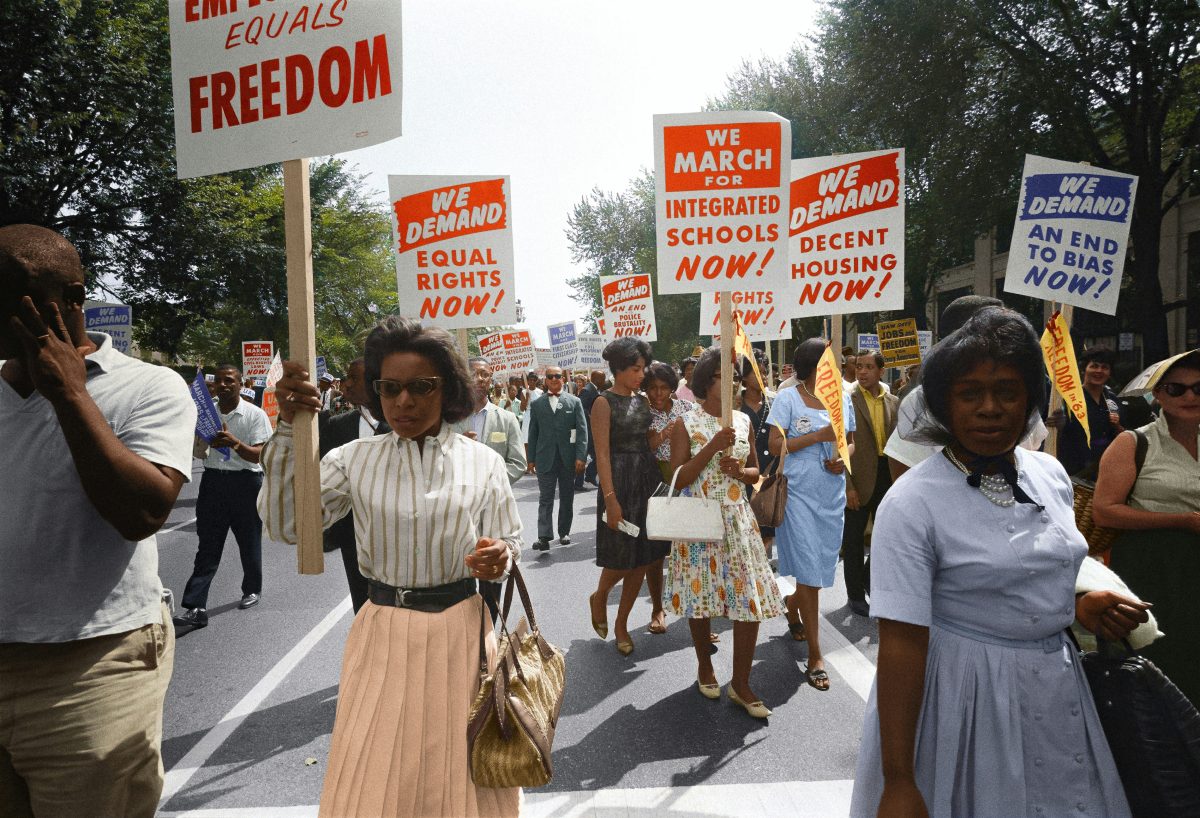In her editorial, Olivia McQuarrie offers an uninformed defense of unjust Obama-era guidelines that promote a false definition of consent. Obama-era guidelines made a bad problem worse, and despite the Trump administration’s controversies, students everywhere deserve justice.
It is impossible to condemn strongly enough the moral holocaust of robbing one’s dignity through unwanted sexual contact. Addressing this obscenity is crucial. That said, the wrongs of France’s monarchy did not justify Robespierre’s Reign of Terror, and the threat of sexual assault does not justify the kangaroo courts of today’s campus tribunals.
According to Emily Yoffe of The Atlantic, Obama-era guidelines force institutions to prosecute all sexual assault cases in house (as opposed to deferring grave cases like sexual assault to the criminal justice system) and systematically deprive the accused of their basic rights to due process. For sexual assault cases, institutions are required to use the preponderance of evidence standard, which, according to Yoffe, “requires schools to make life-altering decisions even when there is great doubt.
Under this standard, if the investigator determines there is a 50.01 percent chance a crime was committed, one is guilty, even if the prosecutor has “considerable reservation” about the decision. The accused’s Sixth Amendment right to cross examination is “severely limited,” and, according to Yoffe, many students “never receive specific, written notice of the allegations against [them].”
Furthermore, per Yoffe, institutions are required to impose “interim measures” before such unfair trial even occurs. These measures often deny the accused access to campus and frequently results in failed classes and even dropouts. Even if one accused of sexual assault survives a blatantly one-sided trial, they could face further difficulties. As Bret Stephens details in a piece for the New York Times, one’s “Fifth Amendment protection against double jeopardy [can] be ignored because campus tribunals aren’t courts of law.” Stephens and Yoffe are not alone in their stance against this mockery of justice. Groups of professors at Harvard Law School and University of Pennsylvania Law School have released open letters echoing that these guidelines, which DeVos is working to revise, are a rejection of basic rights to due process.
Faced with these unjust demands, colleges and universities have decried a new false and dangerous definition of consent — affirmative consent at all levels. Anybody that has been in a sexual encounter knows explicit verbal consent at each and every little escalation is an impossible burden. Similarly, sexual contact does not always require express verbal consent. In the absence of negative body language or an explicit refusal, persistent positive body language and a lack of rejection constitutes consent. While alcohol may lower one’s inhibitions, it does not diminish one’s responsibility for his or her actions. If person A chooses to drink to intoxication then chooses to rob a bank, person A cannot claim it was impossible to choose that action because of intoxication. Person A is still bound by their decision. Similarly, if one consents to a sexual encounter while under the influence, he or she is bound by that decision and nobody can justifiably call this consensual encounter assault. Of course, one must be conscious to consent. The above definition of consent is not radical, it is realistic. In an article for the California Law Review, Jeannie Suk Gersen and her husband Jacob Gerson sum up these sentiments by declaring “conduct classified as illegal … has grown substantially … and plausibly covers almost all sex students are having today.”
Sexual assault must be addressed, but false definitions only complicate the issue. Today’s expansive definition of consent transforms consensual encounters into unwanted assault by arbitrarily shifting a definition. This risks diluting and even normalizing the term sexual assault.
In 1945, after a brutal world war and the discovery of a massive Nazi genocide, the Allies chose to give top Nazi leaders, men charged with “crimes against humanity,” their rights to due process in the Nuremburg Trials. How can our country recognize the rights of people responsible for the Holocaust while systematically denying these same rights to our own citizens? The harms are real. In a series for The Atlantic, Yoffe chronicles the stories of women and men trapped in a vicious web of Title IX guidelines. In many instances, a mere accusation that is later disproved still leads to years missed and a life forever altered. An innocent should never fear persecution, and after studying the facts, one wonders how such egregious injustice is possible in the “land of the free.”
Categories:
Why we must stand with DeVos for our rights to due process and the truth on consent
Paul Gennett, Contributor
October 23, 2017
0
Donate to The Tiger
Your donation will support the student journalists of Clemson University. Your contribution will allow us to purchase equipment and cover our annual website hosting costs.
More to Discover








